September 27, 2017 | Employee Training
Community Colleges: Training the Next Generation of Manufacturers

Training skilled workers is critical to strengthening the U.S. manufacturing sector, especially at a time when about 2 million manufacturing jobs are projected to remain unfilled, due to the worsening skills gap that is taking place throughout the country.
For several years, manufacturers and manufacturing benefactors have explored the cause, and the majority agreed that community colleges can increase their efforts to train the next generation of manufacturers.
With globalization and manufacturing barely catching up with the rapid pace in new technologies, the industry is evolving and changing dramatically such that workers’ skill sets can’t keep step with these constant changes. In-house and external company-sponsored training programs for new and existing workers can close the gaps, but the benefits are short-term.
What can community colleges do in training skilled workers for the manufacturing sector?
Dr. DeRionne Pollard, President of Montgomery College, in a forum on preparing the next generation of manufacturers through community colleges, said that “community colleges are potentially the most transformative institution in contemporary America.”
Many California community colleges over the recent years have enlisted programs, degrees and certifications to train students in manufacturing, such as:
- Machine Operator -- Manufacturing Technology -- Engineering and Technologies A.S. Degree
- Numerical Control Technician -- Manufacturing Technology A.S. Degree
- Tool Designer, Manufacturing Technology -- Engineering and Industrial Technologies Certificate
- Wood Products Manufacturing Technology -- Engineering and Industrial Technologies Certificate
- Machining and Product Development A.S. Degree
- Manufacturing Technology Track I CAM Systems Programming A.S. Degree
- Manufacturing Management Certificate
If you’re interested in the community colleges in California that currently have advanced manufacturing technology programs, here’s a list:
- Long Beach City College
- Santa Ana College
- Orange Coast College
- Moorpark College
- El Camino College
- Yuba College
- Mesa Community College
- Fullerton College
- Saddleback College
There are a variety of programs and certificates available to pave the way for the next generation of manufacturers. Here are some initiatives community colleges can take to enhance their programs in training skilled workers:
Additive Manufacturing Programs
Under the official California Community Colleges Chancellor’s Office website, additive manufacturing (also known as 3D printing) is listed as revolutionary to the industry. All community college students have access to gain “practical knowledge using the devices,” and “will be able to get a high-paying job in a variety of technology sectors.” The featured page shows a Sierra College student working on a 3D prototype for a design project.
The page mentions there aren’t any 3D printing degrees available yet, but many California colleges are “leading the way in making 3D printing an integral part in any engineering and manufacturing-related major.”
Certification Programs
Oakland Community College offers many programs and certificates in manufacturing, as an example. One in particular is the Computer Aided Design and Engineering Technology - Computer Aided Engineering Option. An added benefit is, if you receive an Applied Science degree and are deemed to lack the technical job skills expected of an entry-level employee, Oakland college provides additional training of up to 16 semester credit hours – “subject to the Career Skills Guarantee” they have.
Depending on your desired manufacturing path, there’s a huge list of A.A.S. and certificate programs to choose from, so you have the most up-to-date skills and repertoire going into the workforce. This sets students up for maximum success and confidence in their abilities.
Apprenticeship Programs
Manufacturing is one of the sectors in the economy that have shortages for special skills and specific levels for those skills. For instance, there are few machinists who can operate automated and robotic assembly lines that make cars, armaments, turbines, generators, shipping equipment, and much more.
The California Advanced Manufacturing Apprenticeship Collaborative, or CAMAC, collaborates with colleges all over the state to help manufacturers and students connect and establish real-life skillsets while getting paid competitive wages. Many times, this translates into college accreditation, too. If you’re a manufacturer interested in accessing these programs, check out CAMAC’s employers page here.
The Next Generation of Manufacturers
American manufacturers are depending on community colleges to contribute a major role in training skilled workers for the manufacturing sector.
In her opening statement at the conference titled “Preparing the Next Generation of Manufacturers Through Community Colleges," Dr. Pollard encourages a new branding for manufacturing that is relevant to both the 18-year-old and 48-year-old worker. This developed manufacturing resources and education will help U.S. manufacturers thrive, and find more innovative ways to work on the factory floor and beyond.

